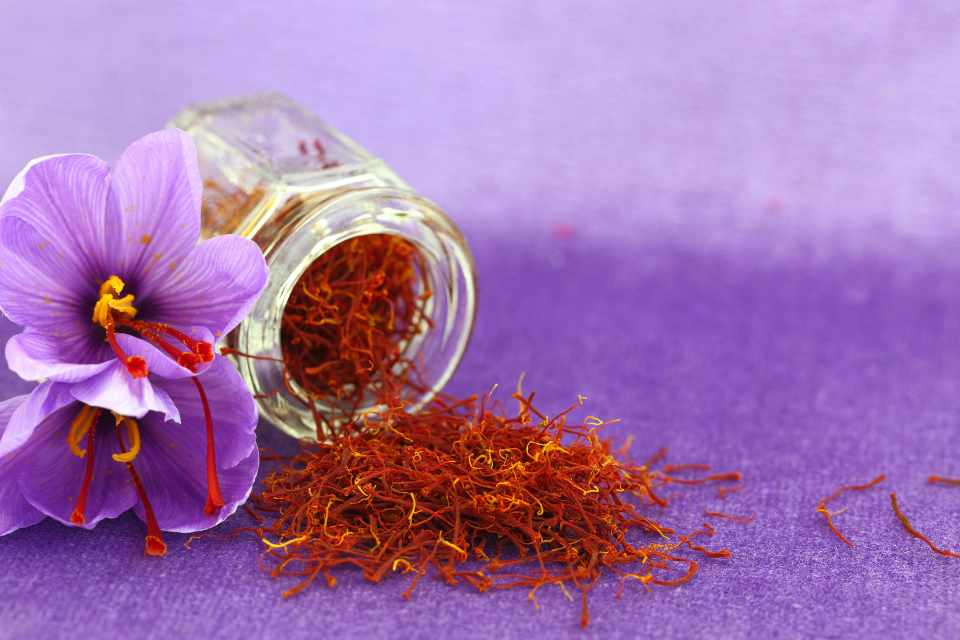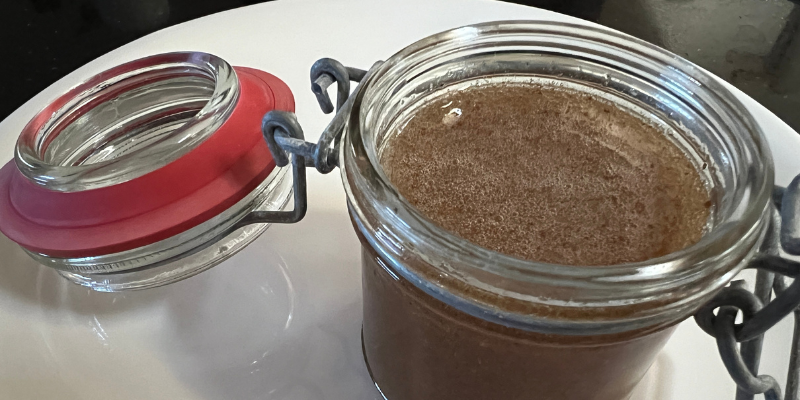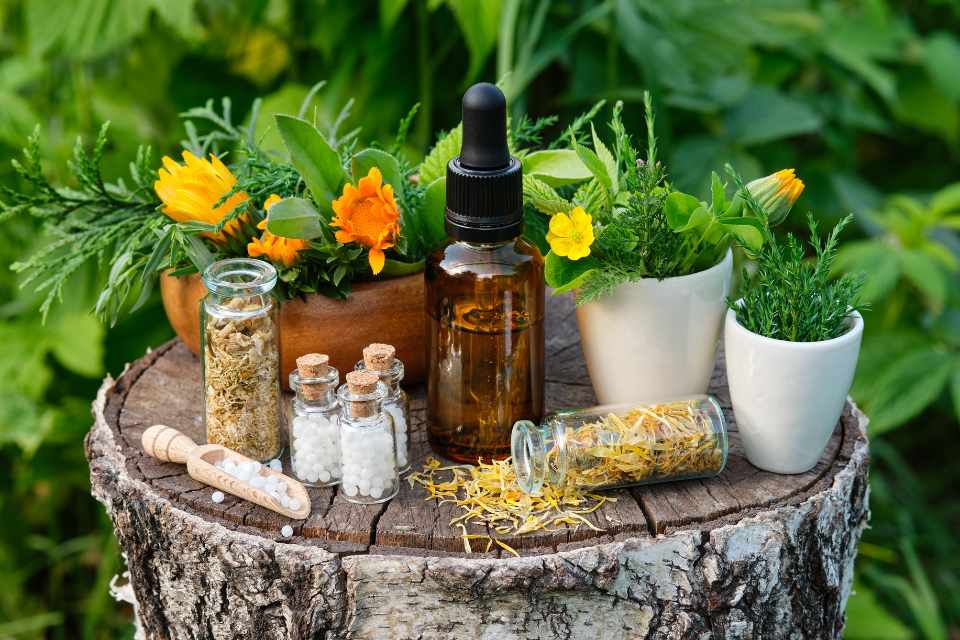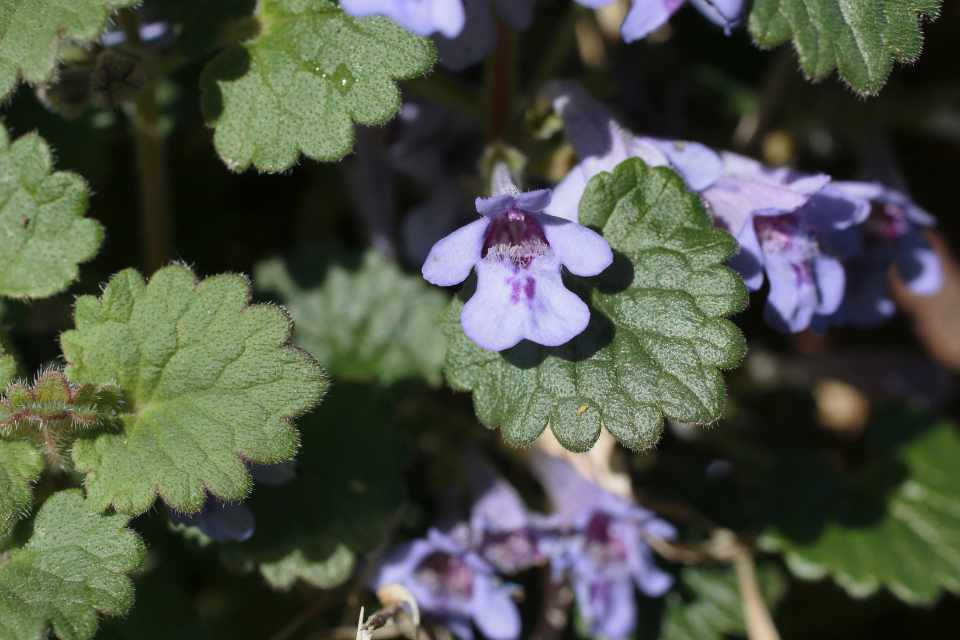Why might you choose to use ? After all, don’t we have antidepressants for that? In fact, modern medicine has an over-simplistic approach to depression. Treating by altering levels of chemicals in the brain. While depression is a with many underlying causes. And, treating with an does little if anything to influence these potential causes.
In the first part of this series of articles on for depression, I suggest some dietary changes that can help to boost mood. Healthy foods can provide the necessary nutrients to build brain chemicals. Plus, they can supply healthy fats and plant chemicals that can help to reduce inflammation in the body. Inflammation that may otherwise create imbalances in the neurotransmitter levels associated with
In this second part, I will discuss herbal medicines and depression. Focussing on those remedies proven to help lift mood and relieve depression. Some , particularly St. John’s wort (), have a lot of research to support their use. Especially in moderate and and .
However, herbs are not the same as pharmaceutical . A should not be viewed as a pill for an ill. In choosing the herbs for a patient, a herbalist considers not just the symptom. But also searches to find the underlying causes of the illness. And, as I mention earlier there could be several causes for such as depression. To find the root cause, a herbalist might ask lots of questions. You will be asked about family relationships, health history and lifestyle. It is also important to consider how well you cope with stress, your life expectations, or your interest in spirituality. These and many other factors can influence and depression risk.
Some causes of depression
If a person has physical symptoms these can also impact on brain health. Recently there has been a lot of interest in how the brain and gut affect each other. The so-called gut-brain axis. In fact, the nervous system of the gut is often called the second brain. Suffice to say, ensuring good gut health is a priority in someone with a .
Depression can also occur as a result of hormone imbalances. Menopausal depression is one of the more common examples. Others include thyroid disorders, especially hypothyroidism, as well as Cushing’s and Addison’s disease.
Physical injuries, such as head injury may trigger later in life. Chronic illnesses of the nervous system such as multiple sclerosis and Parkinson’s disease have an association with depression. And there are also emotional causes such as grief or post-traumatic stress.
So, whilst herbs have a lot to offer it is important to keep in mind possible underlying factors. Having said that, research supports the use of the following herbal medicines for depression.
Herbal remedies for depression
Saffron
Saffron is the world’s most expensive spice. The medicinal part of the plant is the stigma, or pollen gathering part, of the flowering crocus. So, it takes thousands of flowers to produce an appreciable amount of .
Traditionally used for depression in countries where it grows. Scientists have found saffron to be as effective as a . Yet, saffron has additional health benefits.
This study suggests its potential in digestive disorders. Including fatty liver, hyperlipidaemia, ulcerative colitis and other digestive diseases.
This review discusses the use of saffron in several nervous system disorders. It suggests significant anti-epileptic activity. As well as improving cognition in people with mild to moderate Alzheimer’s disease. In fact, saffron was as effective as the drug donezipil for Alzheimer’s. While, in another study, saffron provided some protection against Parkinson’s disease development.
Another study discusses how antioxidants in saffron reduce the risk of cardiovascular diseases. Lowering cholesterol and strengthening circulation.
However, getting back to depression. In this study, people with took 30mg saffron daily for six weeks. In this time the was able to reduce their . The potency of the remedy was comparable to the , fluoxetine and imipramine. Other studies support these results. For example, this study found saffron reduced symptoms of moderate and mild depression. As did this meta-analysis of several trials.
There are some cautions about using saffron as a . Care is necessary in people that have a bleeding . Or, those with low blood counts, diabetes, low blood sugar, or low . Drowsiness may occur with saffron; so use with caution when driving or operating heavy machinery. Avoid if allergic or sensitive to saffron or any member of the Crocus family. And, avoid using saffron if pregnant or breastfeeding.
Roseroot
The tonic herb is also known as roseroot or goldenroot. It has stress-reducing and properties. It is an important example of the herbs known as adaptogens. That is it helps us adapt to the effects of stress. Whether that stress is physical, emotional or chemical. Traditional use includes reduction of fatigue and increasing longevity. Recent research, particularly in Russia provides evidence that roseroot supports cognition and mood.
Roseroot stimulates neurotransmitter receptors in the brain that affect mood. As well as increasing levels of natural endorphins, our feel-good hormones.
In this study, 340mg roseroot, was given daily for 12 weeks to people with mild to . Researchers compared the to and to sertraline, a conventional . They found roseroot had modest effects in some people. Though the effects were less than that of with sertraline. They report that roseroot was well tolerated, with fewer adverse effects than sertraline.
Another study using roseroot for mild to found similar results. Patients received either a , or 340mg roseroot per day, or 680mg roseroot per day. The trial lasted for six weeks. Researchers found that roseroot improved and insomnia at both dosages. With no serious side effects reported by any participants in the trial.
St. John’s wort
This remedy is probably one of the most researched herbal medicines. Though the research is not always favourable. Some data suggests with St. John’s wort may be as effective as SSRIs with fewer side effects.
It is likely that St. John’s wort is better suited to the types of depression related to poor gut health. As well as hormone-related depression such as some women experience during perimenopause. As I suggested earlier, poor gut health is a major contributor to depression. Since inflammatory chemicals from the gut, travel in the bloodstream around the body. In susceptible people, these inflammatory chemicals can affect the brain.
St. John’s wort is an anti-inflammatory herb. It was traditionally used for problems of the digestive system, including inflammatory conditions. Since we now know that there is a connection between the gut and the brain, this makes a lot of sense. By influencing gut health, this herb also affects brain health, via the gut-brain axis. Also, the neurotransmitter serotonin is made in the gut as well as the brain. In fact, 95% of the body’s serotonin is produced in the gut.
St. John’s wort is also a wonderful tonic for the liver. Speeding up the liver’s detoxification systems. This is why it has notable interactions with many medications. Actually, it is helping the liver detoxify the blood. In doing so it clears these medications from the body. Of course, this means if you are taking , you may need to avoid taking St. John’s wort.
Otherwise, St. John’s wort has a very good safety profile. With fewer side effects than those of conventional antidepressants. Though it is recommended that excessive sun exposure is avoided whilst using St. John’s wort. Since it can increase the skin’s photosensitivity.
This study shows St. John’s wort tablets as an effective for mild to . Researchers suggest the herb may also be effective in moderate to . In fact, they propose St. John’s wort may help prevent a recurrence of depression.
What to do now
Now that you know about some herbal remedies for depression, maybe you are thinking of giving these medicines a try. If you would like some guidance, why not contact your local medical herbalist.
In the next few weeks I will be publishing the third part of this series of articles on depression. This final part will focus on the lifestyle changes that can help to lift your mood. If you want to be sure not to miss it, fill in the box for my monthly summary newsletter.








0 Comments